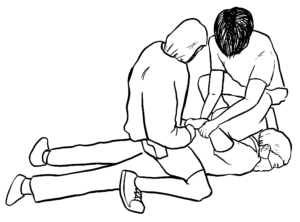Due to lack of jobs Filipinos fall into the gig economy

The number of Filipinos involved in the so-called “gig economy” are rising these past years. (A “gig” is a temporary and non-regular work.) In 2018, there were 2 million workers in this sector. There have been estimates that the number increased during the pandemic. Majority (84%) of them are dependent on online platforms.
In 2021, the Philippines recorded the fastest growing gig economy in the world. Majority are delivery workers o those in the Transport Network Vehicle Service (TNVS).
In a report by Google, the online food delivery service grew the most in the country. This pushed the general merchandise value of the gig economy in the country to $17 billion, 93% higher compared to the previous year.
One of the companies recorded the highest profit in the Philippine gig economy is Singaporean company Grab Holdings Inc. During the pandemic, the company grew by 39% and recorded the highest profit during the first quarter of 2021 with $507 million.
Its competition, Foodpanda, owned by German company Food Hero, recorded a 70% increase in online food delivery. Singaporean company Shopee and Chinese company Lazada, both online shopping platforms, also recorded higher profits.
The “gig economy” embodies the worst forms of flexible work and all-out extraction of superprofits from workers. While these foreign companies rake in profits, their workers suffer worse working conditions.
The “gig economy” blurs the employee-employer relationship between the capitalist and the worker. Workers are falsely categorized as “independent contractors” to make it appear that they control their “own time.”
In truth, capitalists have extended working hours. For example, in the TNVS, drivers usually wait for “orders” the whole day or whole night. Platforms under the TNVS implements a piece-rate (per piece or per ride.) Idle time waiting for orders are not being paid. This is contrary to the right for a paid 8-hour workday.
Capitalists also pass the burden for spending for the working equipment needed. Workers spend for their gasoline, vehicle and repairs. They also buy their own cellphones and load. During the pandemic, they also paid for their health protection. Worse, companies push their workers to acquire branded uniforms and bags which usually cost up to ₱3,000.
Because they regard workers as “independent contractors,” capitalists evade responsibility for them. Denying them health insurance and hazard pay has become legal. Companies are absolved of responsibility even as accidents occur or workers get sick during working hours. Workers are also held accountable if deliveries were delayed even on legitimate reasons. Companies are not obliged to grant them paid leave or day-off.
Worsening exploitation
A study by the Ecumenical Institute for Labor Education and Research (EILER) found companies exploited the pandemic to squeeze greater profits from workers who lost their jobs to the lockdown and migrated to the “gig economy.”
They pulled the minimum earnings of drivers to ₱48 from the ₱79 per delivery pre-pandemic. Their incentives were also decreased to ₱390 from ₱770 which they get every after 11 successful deliveries.
In EILER’s research, even before the pandemic, a driver needed to work in three platforms (Grab, Foodpanda, Lazada) to earn a ₱1,500 net income per day. The rider has to deliver an average of 200 parcels per day.
During the pandemic, there were instances that a driver only gets 20 deliveries per day, on a ₱20-₱45 rate per delivery.
In addition, companies do not give their workers protection during system glitches, fake orders, and customer fake reports. They are forced to pay for deliveries not received by customers.
As “partners” and “independent contractors,” workers are denied their right to collectively negotiate and complain against unjust policies.
In November 2020, hundreds of Grab workers complained at the company’s head office in Metro Manila. They were threatened to be removed from the platform if they will protest.
In June 2021, Foodpanda workers in Davao protested. They demanded an increase in their earnings in deliveries. The company “suspended” them for 10 years.
Amid company threats and harassment, workers remain unfazed. They established organizations in Grab, Foodpanda and other companies. They continue to demand an increase in compensation, benefits and insurance, and fair incentives.



